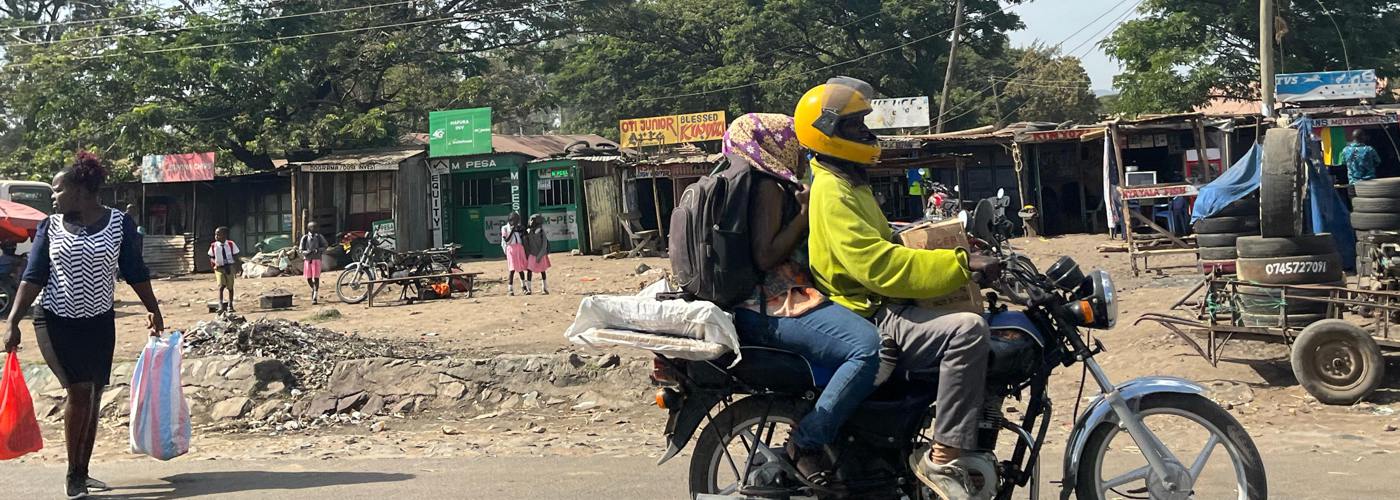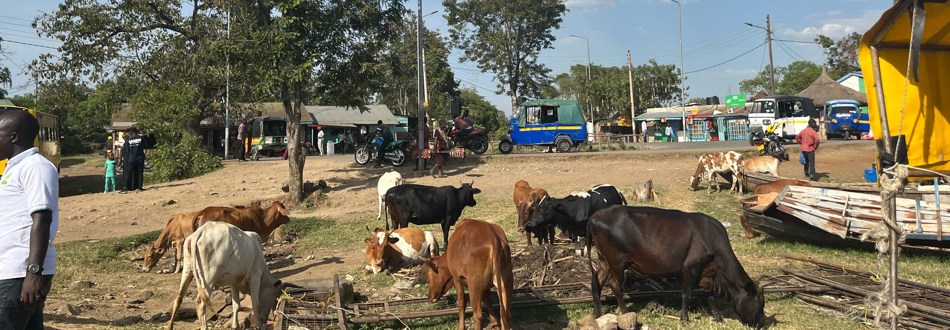Investigating the impact of air pollution on chronic disease in people living with HIV
Globally, air pollution is a leading cause of illness and mortality. In sub-Saharan Africa, it accounts for 5% of disability-adjusted life years (DALYs), with the impact likely even greater for people living with HIV (PLHIV), and other high-risk populations.

Our researchers are uncovering how air pollution exacerbates chronic diseases in people living with HIV (PLHIV), informing interventions to reduce health risks in Kenya and beyond.
Health challenges for people living with HIV
Kenya has 1.4 million PLHIV, with 17,000 new infections annually. While 94% of these individuals receive treatment, they remain at heightened risk of chronic non-communicable diseases (NCDs) such as cardiovascular and respiratory disease, diabetes and mental health conditions. They also face increased susceptibility to tuberculosis and pneumonia - risks that air pollution may intensify.
Understanding the impact of air pollution on these health outcomes is critical to developing strategies that mitigate risks and improve long-term wellbeing.

Dr Obuks Ejohwomu
Obuks is a Reader in Project Management in the Faculty of Science and Engineering.
Linking air pollution to disease
Led by Dr Obuks Ejohwomu, University of Manchester researchers are collaborating with partners in Kenya to investigate how both indoor and outdoor air pollution contribute to adverse health outcomes in PLHIV and other vulnerable groups, particularly women and children.
By demonstrating the links between air pollution exposure and conditions such as NCDs, respiratory infections and worsening HIV treatment outcomes, the team aims to provide crucial evidence for policy change and health interventions.
“Imagine an Africa where clean air is a reality, and PLHIV enjoy healthier, longer lives. This project tackles the urgent need to understand how air pollution affects the health of PLHIV and other vulnerable populations,” Dr Ejohwomu says.
“By providing robust evidence on the links between pollution exposure and chronic diseases, it will inform policies and interventions to enhance public health, strengthen healthcare systems, and build resilience against environmental health challenges in Kenya and beyond.”
Addressing a major public health issue
Globally, air pollution is a leading cause of illness and mortality. In sub-Saharan Africa, it accounts for 5% of DALYs, with the impact likely even greater for PLHIV and other high-risk populations.

Reducing air pollution levels could prevent 15-20% of premature deaths related to cardiovascular disease, stroke, chronic obstructive pulmonary disease, lung cancer, and lower respiratory infections. Among PLHIV, this reduction could be even more significant given their increased vulnerability.
Generating evidence for action
Kenya has limited data on air quality and the impact of ambient and household pollution on health outcomes. Even where data exists, enforcement of air quality standards remains inadequate.
Co-designed with researchers at the University of Nairobi, this project will fill critical knowledge gaps by producing evidence to support public health policies and interventions. By examining the intersection of air pollution, climate change, and HIV, it contributes to global efforts to develop sustainable environmental health solutions.
Transforming health outcomes
By generating vital data and directly implementing interventions to reduce pollution exposure, the project will help improve treatment outcomes for PLHIV, enhance public health strategies, and promote long-term climate and health resilience in Kenya and the wider East Africa region.
Learn more about global health projects and activities at Manchester.
